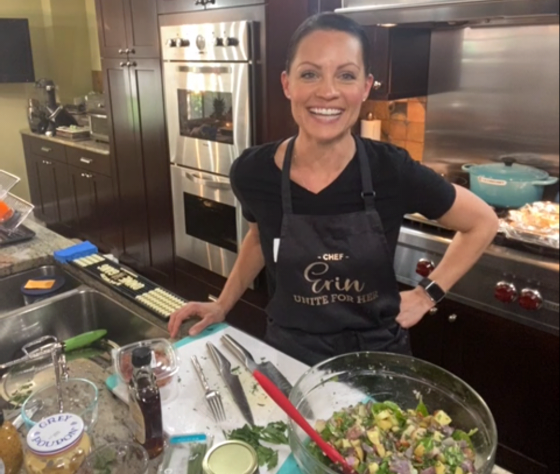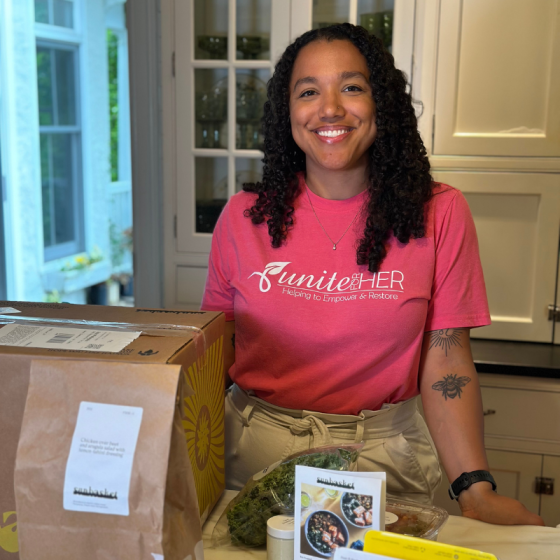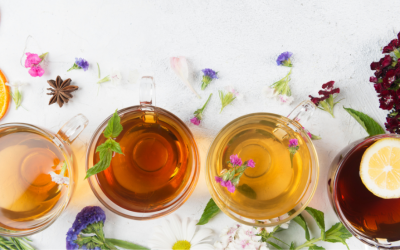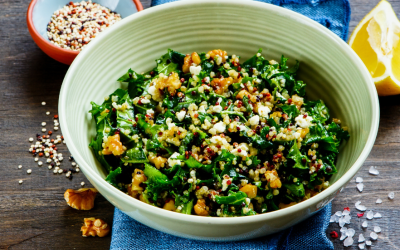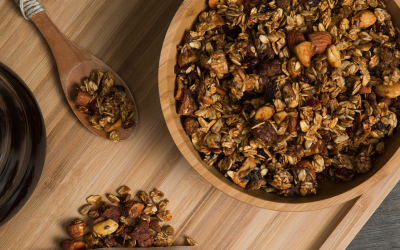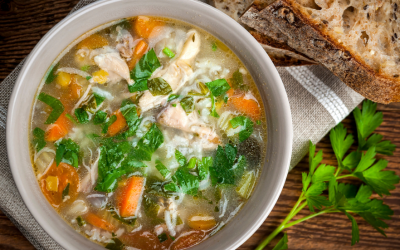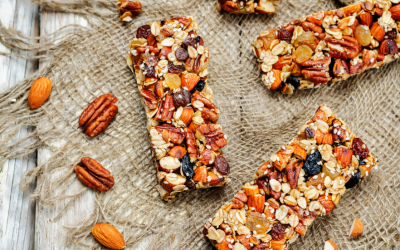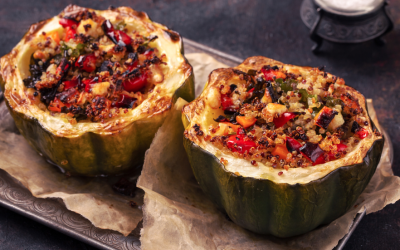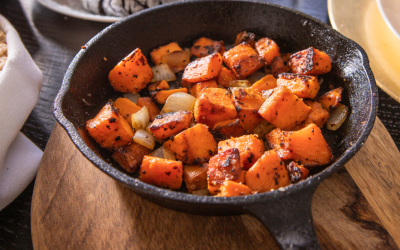Nutrition Resources
Explore Our Free Nutrition Resources
Click on a topic below to view additional resources, including scientific studies, supportive services, and educational forms.
Links
Handouts
Cooking and choosing recipes can be hard. Let the Unite for HER Culinary Dietitian team help!
Learn cooking techniques and nutrition basics from the culinary dietitan team at Unite for HER.
Struggling with protein intake? Chronically low iron? Click on the links below to view foods rich in various nutrients.
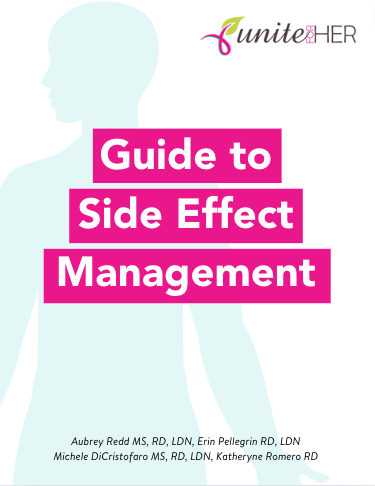 Starting a new treatment? Click on the links below to review our helpful treatment guides to learn about common side effects, and how to support yourself nutritionally before, during, and after your treatment.
Starting a new treatment? Click on the links below to review our helpful treatment guides to learn about common side effects, and how to support yourself nutritionally before, during, and after your treatment.
Try a Live Virtual Cooking Class
Learn new recipes with live classes by Unite for HER’s culinary nutrition team. Join us on Zoom to engage with our community and discover how nutrition can help to manage side effects and symptoms of treatment.
 Find Answers to Your Frequently Asked Questions
Find Answers to Your Frequently Asked Questions
Is soy bad? Do I have to eat only organic foods? Can I drink alcohol?
Find these answers and more from our team of licensed registered dietitians.
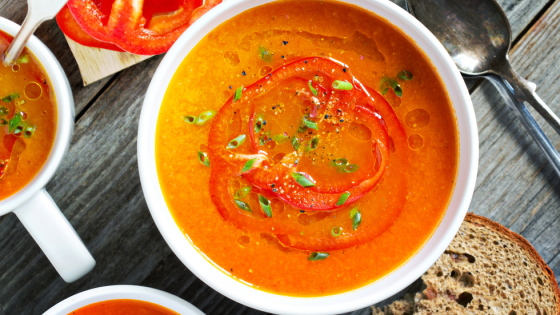
Discover New Recipes
Discover healthy and delicious recipes, from soups, pizza, and one-pan meals, to breakfasts, snacks, and more! All recipes are developed and curated by our team of culinary dietitians.
Explore Our Video Library
Watch to learn basic cooking skills, facts about nutrition, step-by-step instructional cooking videos, and more, in our free video library.
New videos added monthly!

Simplify Grocery Shopping with the Sifter App
Sifter is a free online resource that helps you to choose foods based on your personal goals. Download the app or access online to create a custom shopping list by food preferences, dietary restrictions, and more.
Frequently Asked Questions
Do I need to only eat organic foods?
No, not necessarily. First, it’s important to note that both organic and conventionally grown produce contain similar amounts of high-quality nutrients – vitamins, minerals, antioxidants, and fiber. Any subtle differences are generally related to the soil in which it is grown. The priority should always be to consume a diet high in fruits and vegetables of any kind. If it is within your food budget to purchase organic food, begin by prioritizing what is realistic, attainable, and of priority to you. If you are looking to make organic upgrades, consider starting with your animal proteins and/or dairy, specifically the 1-2 items you consume most frequently. When thinking of produce, prioritize what you eat the exterior of, and again, the 1-2 items you consume the most. And always be sure you’re washing your produce before consumption.
Do I need to eat completely vegan or vegetarian?
You can, but only if you want! Plant foods are nutrient-dense and can provide all the essential nutrients (even protein!) that you need throughout the day.
Are phytoestrogens (like soy and flax) safe with hormone positive cancer?
The phytoestrogen isoflavone is an estrogen-like plant nutrient found in foods like soy and flaxseed. While the chemical structure is similar to human estrogen, isoflavones are significantly weaker and do not always mimic estrogen. Research has shown that high-quality isoflavones may reduce breast cancer risk and reduce recurrence in survivors.
What foods reduce inflammation?
Anti-inflammatory foods include fruits, vegetables, beans, lentils, nuts, seeds, fish, seafood, whole grains, herbs, and spices. Some foods, like red meat, processed meat, added sugars, and ultra-processed items can be considered triggers to inflammation (pro-inflammatory).
Should I start taking supplements?
If your lab values indicate a low level or increased needs for a certain nutrient, supplementation may be warranted. Many supplements have food counterparts that provide similar nutrients (such as iron). Those nutrients are more bioavailable and ready for absorption when obtained from food. Always consult your doctor before starting any supplementation to ensure adequate dosage and avoid nutrient-drug interactions.
What makes cruciferous vegetables so healthy?
Cruciferous vegetables like broccoli, cauliflower, and cabbage are rich in plant nutrients like carotenoids, vitamins, minerals, and fiber. Additionally, cruciferous veggies contain glucosinolates which, when broken down into chemical compounds, are shown to have anticancer properties.
Does sugar feed cancer?
Sugar, the byproduct of carbohydrates, is our body’s main source of energy. This means that sugar is the fuel for all our body’s cells, healthy or otherwise. The sugar in high-quality carbohydrates like fruits, starchy vegetables, and whole grains can promote healthy energy levels and combat fatigue. Added sugars, like sweeteners in flavored yogurt and cereal, have been attributed to increased inflammation. Focus on natural, high-quality carbohydrates over added sugar.
Should I be doing intermittent fasting?
Depending on your history and personal goals, intermittent fasting (IF) can be a tool for some during and after cancer treatment. Overall, more research is needed to evaluate its exact relationship with cancer treatments, side effects, and weight control. Anyone diagnosed with an eating disorder, disordered eating, or diabetes should avoid all forms of food restriction, including IF. Working with a registered dietitian can help you determine and meet your nutrition goals!
Do I need to eliminate dairy?
There is not enough evidence to prove that there is a relationship between dairy and cancer. Dairy products provide protein and vitamins (like calcium and vitamin D) that are important for overall health, and particularly bone health. If you enjoy dairy products simply choose those lower in fat and consider options with live active cultures, like yogurt and kefir, to support gut health!
Is it safe to lose weight while in active treatment?
While a healthy body weight (based on your age and height) is recommended, some patients might experience unintentional weight loss due to treatment side effects. Therefore, the priority during treatment should be to consume sufficient calories and nutrients to support an individual through treatment and recovery. And while weight management is an important part of cancer survivorship, we highly recommend it be achieved after active treatment through a balanced diet, physical activity, and behavioral support. A registered dietitian can help you achieve your weight goals.
Should I be “juicing”?
Sure, juicing can be another way to include more fruits and vegetables in your diet. If you are experiencing difficulty chewing or swallowing, both juicing and smoothies are a great way to stay nourished and support hydration. However, it does not replace eating whole fruits and vegetables. The juicing process removes the fiber from our produce, so it is best to enjoy juicing among the various other ways we can consume our fruits and vegetables.
Do I need to follow a gluten-free diet?
No. Only if you’ve been diagnosed with Celiac Disease or have gluten intolerance.
What should I be eating during chemo?
We recommend following the American Cancer Society guidelines for a plant-based approach. We understand that this can be challenging to do if you are experiencing side effects like changes in taste, nausea, vomiting, diarrhea, and more. The priority is always to meet calorie, nutrient, and hydration needs. Speak with a registered dietitian if you need advice on how to nourish your body while managing side effects.
What should I eat to prepare for radiation?
Everybody reacts differently to radiation and unfortunately, there is no way to prepare for the unknown. Nonetheless, we encourage you to follow the American Cancer Society guidelines for a plant-based approach and prioritize protein (both plant and animal sources) intake, hydration and a varied diet – especially vitamin C foods – to promote tissue healing and regrowth.
Can I consume alcoholic beverages?
It is best to not drink any alcohol since there is strong evidence that it increases the risk for several cancers including pharynx, larynx, esophageal, colorectal, breast, liver, stomach, and others. Instead, try some of our mocktail recipes. Should you choose to consume, limit imbibing to a situational format and have no more than 2-3 servings per week. 1 serving of alcohol is equal to 12 oz. of beer, 5 oz. of wine, or 1.5 oz. of a distilled liquor.
Are red meats and processed meats safe to eat?
Red meat and processed meat consumption has been linked to an increased risk of colorectal cancer. The American Institute of Cancer Research (AICR) recommends no more than 18 ounces of red meat (beef, pork, lamb), however, ideally notes to limit that to 1 serving per week. For processed meats (deli meat, cured meat, breakfast meats, hot dogs), the AICR notes any amount of regular consumption can be linked to colorectal cancer. Consider saving these foods for special occasions, instead of consuming them regularly.
How much water should I be drinking?
Everyone is a bit different, but it’s important to stay hydrated! You will have increased needs during treatment, when you have a temperature, in warmer weather, and when performing physical activity. Water is ideal, but unsweetened beverages, homemade rehydration drinks, soups, broths, and hydrating fruits and vegetables (celery, cucumbers, melons, greens) can also be supportive!
Meet the Culinary Nutrition Team
For Educational and Informational Purposes Only
-
The information provided in or through this website,including but not limited to, text, graphics, images and other material, is for educational and informational purposes only. Use of the health-related information contained on this website does not constitute a clinician-client relationship. Information contained on this site is intended as a self-help tool for your own use. The views on this website do not reflect the values, thoughts or opinions of the Academy of Nutrition and Dietetics or other professional health organizations.
-
The information contained in this website is not intended to be a substitute for individualized medical advice from a medical provider or therapy from a therapist. Although care has been taken in preparing the information provided to you, we cannot be held responsible for any errors or omissions, and we accept no liability whatsoever for any loss or damage you may incur. Always seek medical adviceof your physician or other qualified health care providerfor your specific circumstances as needed for any and all questions and concerns you now have or may have in the future.Never disregard professional medical advice or delay in seeking it because of something you have read on this website.
-
Any product recommendation is not intended to diagnose, treat, cure, or prevent any disease. Our statements and information have not necessarily been evaluated by the Food and Drug Administration.
-
We expressly disclaim responsibility to any person or entity for any liability, loss, or damage caused or alleged to be caused directly or indirectly as a result of the use, application or interpretation of any material provided.
Tea: The Ancient Beverage with Modern Health Benefits
Tea is the second most popular beverage in the world after water, enjoyed by two-thirds of the global population. Its consumption dates back to...
Tex Mex Quinoa Mason Jar Salad
Say goodbye to boring lunches and hello to vibrant flavors with this bright, zesty mason jar salad! Think fluffy quinoa for a protein punch,...
One Pot Chicken and Lentils
When life gets busy, the last thing you need is a sink full of dishes after dinner. That’s where this one-pot chicken and lentil recipe comes in....
Simple Granola
Mornings can feel rushed, but starting your day with a wholesome, homemade breakfast doesn’t have to be complicated. This budget-friendly granola...
Chicken Vegetable Soup with Ginger Meatballs
This comforting and flavorful chicken vegetable soup is taken to the next level with the addition of tender, aromatic ginger meatballs. The rich,...
Anytime Bars
These homemade bars are the perfect balance of wholesome ingredients and natural sweetness. Packed with crunchy pecans and almonds, they provide a...
Greg’s Stuffed Acorn Squash with Quinoa, Cranberries, and Swiss Chard
This hearty and vibrant dish is a perfect celebration of fall flavors. Tender acorn squash halves are roasted to perfection, then filled with a...
Joyful & Nutritious: Healthy Holiday Eating
It’s official – we are heading into the holiday season! It’s a time for celebration, family, friends, and of course, food. From festive dinners to...
A Taste of Harvest
Enjoy a Harvest recipe at home. Developed by the UFH team of Registered Dietitians, these energy bites make for a healthy and easy snack or...
Roasted Sweet Potatoes
Roasted sweet potatoes with honey and cinnamon are a delightful blend of sweet and savory that makes for a perfect side dish or a satisfying snack....

